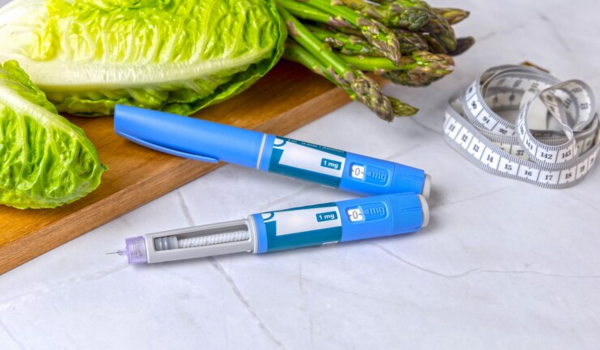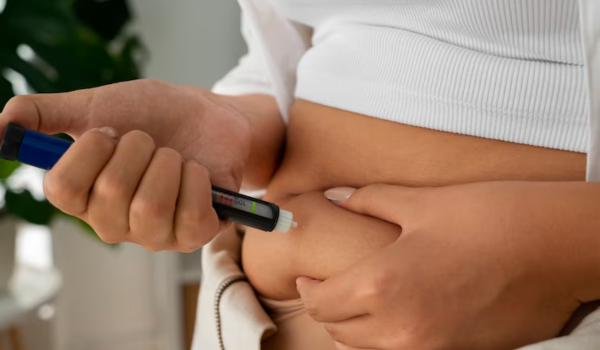Best Gut Health Test Kits for Weight Loss in 2025
Best Gut Health Test Kits for Weight Loss: Top Picks to Improve Digestion, Burn Fat, and Feel Better

In the world of weight-loss, conventional advice like “eat less, move more” is giving way to a new frontier in your gut microbiome.
Trillions of microbes in your gut play a pivotal role in metabolic health, inflammation, satiety, and energy. This microbial ecosystem can act like a switch for weight gain or weight loss.
- Obesity is linked to a specific gut microbiome “signature” that influences metabolism, energy harvest, and weight regain demonstrated in animal studies where gut bacteria transferred obesity traits.
- The emergence of personalized nutrition backed by gut data has shown promise: in an 18-week randomized controlled study, a personalized program significantly reduced weight, waist, blood sugar, and improved gut health compared to standard dietary advice.
Enter at-home gut health test kits tools that decode your gut microbiome to deliver personalized insights aimed at unlocking sustainable weight loss.
But with kits ranging from basic gut composition screens to multi-dimensional metabolic assessments, how do you cut through the noise and pick the right one?
Why Gut Health Matters for Weight Loss?
1. Microbiome, Metabolism & Satiety
Your gut bacteria can:
- Snatch more calories from food
- Produce short-chain fatty acids (SCFAs) like butyrate, known to enhance insulin sensitivity and support fat metabolism
- Influence hunger and satiety hormones (leptin & ghrelin)
- Modulate inflammation, a key driver of weight gain and energy dysregulation
2. Personalized Nutrition: Evidence in Action
ZOE’s METHOD trial, a clinical study, showed a personalized nutrition program (microbiome + blood sugar + blood fat responses) outperformed generic advice. Notable results:
- 2.5 kg (5.5 lbs) more weight loss
- 2 cm extra waist reduction
- Improved mood, gut health, blood glucose, and sleep
This illustrates that data-driven personalization based on gut microbiome and metabolic responses works.
What Makes a Good Gut Test for Weight Loss?
When reviewing kits, scrutinize these four pillars:
Testing Technology
- 16S rRNA sequencing identifies bacterial genera (broad view).
- Shotgun metagenomic/RNA-based sequencing offers strain-level precision, revealing what microbes do, not just who they are.
Metabolic & Weight-Relevant Insights
- Does it measure functional scores (blood sugar control, fat metabolism)?
- Does it include weight management indicators vs. generic diversity metrics?
Actionable, Personalized Guidance
- Do you receive customized food plans, supplement guidance, or app support?
- Are resources based on clinical research?
Ongoing Support & Accessibility
- Health coaches or expert consultations elevate outcomes.
- Learning from others’ experiences adds perspective.
Top Gut Health Test Kits for Weight Loss
Below we explore several top-tier kits, weighing scientific depth, personalization, support, and user experience.
1. Viome Gut Intelligence™ (and Full Body Intelligence)
Testing Technology: Viome uses RNA sequencing, which measures microbial activity (functionality) rather than presence, providing insight into what your microbes are doing.
Weight‑Relevant Data:
- Offers scores for blood sugar control, insulin resistance, metabolic efficiency, protein fermentation, gut inflammation and gut lining health.
- Gut Health Score integrates microbial diversity, digestion quality, inflammation markers, and cellular energy health.
Intervention Approach:
- Provides personalized food lists and supplement suggestions rooted in your gut function and metabolic needs.
- Offers Precision Supplements tailored to stimulate favorable microbial activity like boosting postbiotic butyrate to help insulin pathways.
Pros:
- High-resolution functional data
- Personalized guidance with supplement backing
- Intuitive dashboard and actionable plan
Cons:
- Higher cost ($299–399)
- Supplemental offerings via subscription may push supplement use
- Medical classification is limited results aim to guide wellness, not diagnose
2. ZOE Program (Gut Microbiome + CGM + App)
Testing Technology: Combines shotgun sequencing of your gut microbiome with 13-day continuous glucose monitoring (CGM) and blood fat tests .
Weight‑Relevant Data:
- Empowers participants to understand blood sugar spikes and process dietary fats with precision.
- PREDICT/ZOE trials show heterogeneous individual responses reinforcing the need for personalization.
Intervention Approach:
- App-driven tracking with personalized food scores and meal recommendations.
- Emphasizes plant diversity over calorie counting.
- Includes expert coaching for behavioral change.
Pros:
- Clinically validated approach
- Multi-pronged data integration (microbiome, CGM, blood markers)
- Encourages sustainable habits (meal logging, plant variety)
Cons:
- Costly (~£299 / $400+); ongoing membership fees
- CGM wear may be inconvenient
- Critics caution that CGM use in non-diabetics can foster undue concern
3. GutID (Intus Bio) (Launched 2025)
Testing Technology: Uses PacBio for full strain-level metagenomic profiling, capturing bacteria, viruses, and fungi .
Weight‑Relevant Data:
- Detailed microbial strain insights can detect subtle dysbiosis affecting metabolism.
- May offer metabolic scores, inflammation indicators, and gut-brain axis analysis.
Intervention Approach:
- Provides personalized food and supplement recommendations without selling supplements.
Pros:
- Highest resolution (strain-level mapping)
- No upsells or membership tied to supplements
- First user reports show significant weight loss (e.g., ~40 lb in 4 months)
Cons:
- Pricey ($399–599)
- New in market limited public reviews
- Turnaround might take 3–4 weeks

4. Floré Gut Health Test
Testing Technology: Provides broad DNA sequencing, covering bacteria, viruses, fungi, and phages (over 23,000 organisms).
Weight‑Relevant Data:
- Focuses on microbial diversity, balance, pathogen presence not specifically weight-related metrics.
Intervention Approach:
- Includes general dietary guidance, with optional probiotic subscriptions.
- Proceeds support Crohn’s and Colitis research.
Pros:
- Comprehensive ecosystem mapping
- Charitable aspect
- Independent coverage (Medical News Today, InnerBody)
Cons:
- Lacks metabolic or weight-focused biomarkers
- Membership required for supplemental benefits
- Moderate cost (~ $249)
5. Verisana Leaky Gut Complete
Testing Technology: Assesses gut barrier health using markers like zonulin, plus DNA sequencing.
Weight‑Relevant Data:
- Evaluates “leaky gut” which can induce systemic inflammation, a contributor to metabolic imbalance.
Intervention Approach:
- Delivers peer-based benchmarks; consults required for interpretation.
Pros:
- Focused evaluation on gut permeability
- Clinical reporting with peer comparisons
Cons:
- Not built for weight tracking
- Interpretation requires professional support
- Cost ~ $250
6. Ombre (formerly Thryve)
Testing Technology: Utilizes 16S microbiome sequencing, supplemented with proprietary insights and probiotics .
Weight‑Relevant Data:
- Provides basic gut ecology insights; no advanced metabolic metrics.
Intervention Approach:
- Probiotics matched your gut profile; dietary guidelines included.
Pros:
- Budget-friendly (~$100–150)
- Straightforward results and recommendations
- Affordable entry-point
Cons:
- Limited depth (genus-level only)
- Product-driven upsells
- No weight-specific focus
7. Tiny Health Gut Baseline Test
Testing Technology: DNA-based test + live coaching session.
Weight‑Relevant Data:
- Functional analysis of gut microbiome; lacks details on weight or blood sugar scores.
Intervention Approach:
- Includes one-on-one coaches who partners to translate gut results into action.
Pros:
- Personalized coaching + strategy
- Great for accountability and guided lifestyle change
Cons:
- Longer turnaround (4–8 weeks)
- Coaching bump makes it more costly (~$200–300)
- Lacks high-resolution microbial data
Comparative Overview
| Product | Testing Approach | Weight/Fat Focus | Personalized Plan | Support Level | Cost Range |
| Viome Gut Intelligence | RNA sequencing | ✅ Yes | ✅ Food + supplements | App-based, moderate | $299–399 |
| ZOE Program | Shotgun + CGM + app | ✅ Clinically proven | ✅ App, coaching | High, behavior‑focused | ~$400+ + membership |
| GutID (Intus Bio) | Strain-level DNA | ✅ Yes | ✅ Food/supp advice | Data only, raw | $399–599 |
| Floré Test | Broad DNA | ⚠️ No | ✅ General guidance | Minimal support | ~$249 |
| Verisana Leaky Gut | DNA + Zonulin | ⚠️ No | ⚠️ Limited | Pro consult needed | ~$250 |
| Ombre Gut Test | 16S sequencing | ⚠️ No | ✅ Basic guidance | Low-moderate | $100–150 |
| Tiny Health Baseline Test | DNA + coaching | ⚠️ No specifics | ✅ Lab + coach | Human-led + support | $200–300 |
How to Choose Your Ideal Kit?
1. Define Your Goal
- Deep metabolic data? → Viome or GutID
- Clinically proven path? → ZOE
- Budget-conscious? → Ombre
- Need accountability? → Tiny Health
2. Review Data Depth
- Want weight, blood sugar, inflammation insights → go for kits like Viome, ZOE, GutID.
- Only want general gut health → consider Floré or Ombre
3. Determine Support Level Needed
- Do you thrive with coaching? Tiny Health or ZOE is a good fit.
- Prefer DIY? GutID or Viome works well.
4. Weigh Cost vs. Value
- High-end kits may yield greater long-term savings if they lead to sustained behavior change.
- Entry-level kits still offer useful, if limited, insight.
5. Verify Turnaround & Usability
- Viome: ~4 week
- GutID: ~3–4 weeks
- Tiny Health: 4–8 weeks
- Ombre: usually quicker
- ZOE: CGM needs 13 days + analysis time
Caveats & Considerations
- Science is Still Emerging: Experts caution that microbiome science for weight is nascent. ZOE’s methodology has faced scrutiny:
- Study design significance, differentiation of data vs app usage unclear.
- Personalized nutrition is promising but long-term health outcome benefits remain under review.
- Too Much Information Leads to Paralysis: Highly detailed reports can be overwhelming. If analysis clarity is low, seek guidance or choose kits with built-in coaching.
- Supplements Aren’t Always Mandatory: Kits like Viome or Ombre push proprietary supplements; always judge based on your healthcare context.
- Emotional Impact & Anxiety: CGM data can stress out users without diabetes. Apps like ZOE claim monitoring systems to reduce anxiety but this remains controversial.
- Kits Are Not Diagnostic Tools: They’re wellness tools, not medical diagnostics. Consult healthcare professionals if you have GI symptoms or chronic conditions.
Action Plan: Starting Your Journey
Step 1: Pick the Right Kit – Choose based on your budget, data needs, and preferred guidance style.
Step 2: Take the Test – Collect and submit stool (and CGM or blood fat sample if required).
Step 3: Review Your Report – Give attention to metabolic scores, blood sugar, fat metabolism, inflammation, gut health diversity.
Step 4: Craft Your Plan – Follow personalized advice, food lists, supplement guidelines, meal swaps.
Step 5: Implement Gradually – Start with one or two substantial changes; slow integration improves adherence.
Step 6: Track Progress – Monitor weight, hunger, energy, sleep. Many apps help track your habits.
Step 7: Re‑test Periodically – Every 3–6 months retesting helps you fine-tune the plan.

Diet Shifts Based on Gut Types
Gut test kits often assign “types” or scores. Here are common ones and how to adjust:
| Gut Profile | Issue | Fix |
| Low SCFA-producing bacteria | Poor insulin sensitivity, slow metabolism | Add resistant starch (green bananas, cooked-cooled rice), inulin, and acacia fiber |
| High Firmicutes: Bacteroidetes ratio | Fat storage tendency | Increase plant diversity, cut processed fats |
| High proteolytic bacteria | Increased ammonia, toxic byproducts | Cut red meat, boost polyphenols (berries, green tea) |
| Low Akkermansia muciniphila | Leaky gut, poor fat metabolism | Add pomegranate, polyphenols, fasting intervals |
| High sugar-fermenting bacteria | Cravings, energy dips | Eliminate added sugars, support butyrate production |
Frequently Asked Questions
Are gut tests essential for weight loss?
- Not mandatory but they can reveal hidden metabolic roadblocks and provide clarity when standard dieting fails.
When will I see results?
- Weight and energy improvements often occur within weeks, full benefits in 3‑6 months only if lifestyle changes are sustained.
How often to retest?
Reassess every 3–6 months to evaluate microbiome shifts and adjust your strategy.
Conclusion
In today’s world of conflicting diet trends, calorie confusion, and one-size-fits-all meal plans, it’s easy to feel overwhelmed.
But if you’re still struggling to lose weight despite “doing everything right,” the answer may be inside you literally.
Your gut microbiome controls far more than just digestion. It influences:
- Fat storage
- Appetite and cravings
- Energy metabolism
- Inflammation
- Hormonal balance
That means if your gut is imbalanced, your weight loss efforts are already swimming upstream.
The best gut health test kits like Viome, ZOE, Ombre, Thryve, and BiomeFx give you the missing information your body has been trying to tell you all along.
When you feed your unique microbiome what it needs, the results can be dramatic: less bloating, more energy, reduced cravings, and real fat loss that lasts. These tests aren’t just tools. They’re turning points.
.